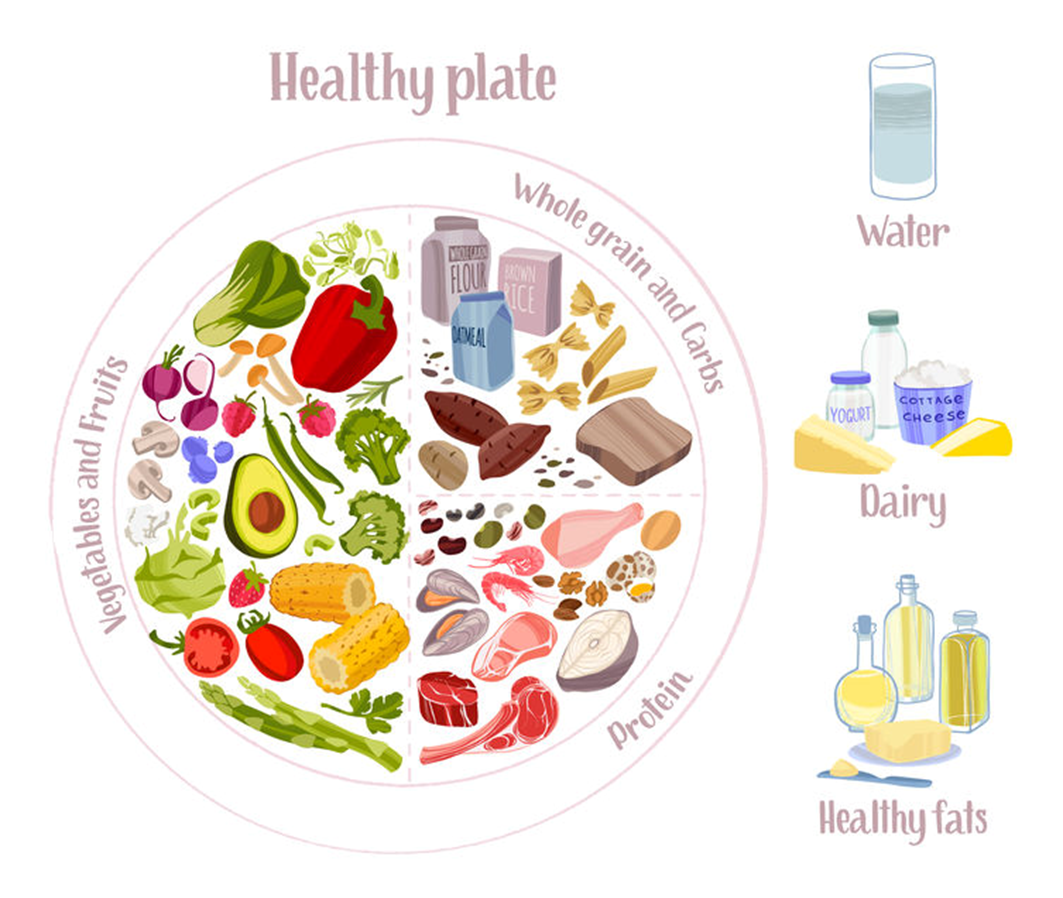Note that your final mark will not be saved in the system.
4. Nutrition and digestion GapFill
You must fill all the gaps before clicking ‘Check Answers!’

Food and nutrition
Plants make their own food by photosynthesis, but animals, including humans, need to eat.
A healthy diet contains:
- All the nutrients we need in the correct amounts. If we do not get all these nutrients we could suffer from malnutrition or diseases.
- The right amount of energy. Energy is measured in
Energy
We use energy for:
- Movement – the more we move the more energy we use up
- Maintaining our body – that’s why we usually eat more in winter
- Our body’s chemical reactions
If we take in more energy from our food than we use up, the excess is stored as .
Not enough food
Not eating enough food means you will become too thin and you could suffer from health problems. These include:
- irregular periods in women
- reduced resistance to infection
- deficiency diseases
Deficiency diseases include − where a lack of vitamin D affects proper growth of the skeleton − and kwashiorkor - where not getting enough protein causes the abdomen to swell.
Problems like these are more likely to affect people in the developing world, where it can be more difficult to get enough food, but they can also affect people who deliberately don’t eat enough because they suffer from anorexia.
Too much food
Eating too much food without exercising enough means you will become overweight. Doctors describe very overweight people as
. Overweight people can suffer from health problems, such as:
- diabetes − an illness where the amount of in the blood is not controlled properly
- arthritis − an illness in which the joints become worn and painful
- high blood pressure and heart disease
Nutrition
Nutrients are essential substances that the body needs. There are different types of nutrients, each with its own purpose:
1. Carbohydrates provide energy. The main types of carbohydrates are:
- Simple carbohydrates (also known as ). They are provided by sweet foods like chocolate, and the natural sugars in fruit.
- Complex carbohydrates (also known as starch). Starch molecules are formed of long chains of sugars joined together. They are found in foods like bread, rice, and potatoes.
2. Lipids are fats and oils. The body uses lipids as an energy store, and for insulation to keep us warm.
3. Proteins are needed to make new cells for growth and to repair damaged tissues, such as muscles. Beans, eggs, fish, meat and milk are high in protein.
4. Vitamins are important in small amounts for healthy body functions. For example, vitamin helps blood to clot and vitamin C prevents illness. Fruit and vegetables are high in vitamins.
5. Essential include iron, used to make red blood cells, and calcium, for making bones and teeth hard.
We also need water to stay hydrated.
Fibre is needed to keep your digestive system healthy. We don’t absorb it but it helps food to pass through the intestines. We get fibre from vegetables and whole grains. A lack of fibre in the diet can cause and bowel disease.